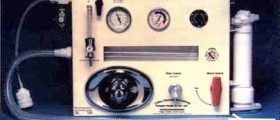Information on Magnesium Citrate
Magnesium citrate is actually very efficient in inducing bowel movement by increasing the volume of water inside the human intestine. It is safe to use magnesium citrate as a laxative occasionally, but it should not be used frequently because it may lead to certain side effects. Magnesium is one of the essential minerals which makes it an important nutrient.
It is vital for the proper functions of muscles and nerves. Its derivatives are sometimes used for the enhancement of bowel movement. Magnesium hydroxide is one of the most popular derivatives of magnesium and it is commonly used for the relief of numerous symptoms of constipation. Magnesium citrate can be used for the induction of defecation prior to numerous different types of therapeutic and surgical procedures.
Magnesium Citrate as Laxative
Magnesium citrate gets formulated from citric acid and the salts of magnesium but they need to be combined in a specific ratio under certain specific conditions.
Chemically speaking magnesium citrate is hyperosmotic saline. It utilizes osmosis in order to draw water from the cells in the human body and when the water gets accumulated in the intestines it induces the urge for defecation.
- Magnesium citrate has been used in bowel preparations prior to a colonoscopy as a cathartic agent.
- It is also used in over-the-counter products to relieve occasional constipation.
- Magnesium citrate can be one of the forms used for the administration of dietary supplements.
- The onset of action can be as early as 30 minutes after administration with a mean onset time of approximately 2 hours and a maximum action of 4 hours. The effect of magnesium citrate is highly dependent on the individual's hydration status.
- It mainly works through its property of high osmolality which will draw large amounts of fluid into the colonic lumen. There is also a possible stimulation of fluid excretion by cholecystokinin release and activation of muscle peristalsis.
- Mean plasma concentration of magnesium after administration of oral doses of magnesium citrate are reported to be of around 0.7 mmol/L and the concentration in saliva rested in 0.28 mmol/L. In reports, it has also been proven that the absorption and bioavailability of magnesium are greater when administered in the form of magnesium citrate when compared with other forms such as magnesium oxide.
Magnesium citrate is often prescribed for the treatment of certain types of colon-related health conditions such as constipation. It can be purchased over the counter for such purposes. It usually takes up to 3 hours after the administration of the medicine to start observing its effects.
Magnesium citrate may be purchased in the form of tablets and it can be used as a nutritional supplement. Magnesium citrate contains plenty of magnesium.
Magnesium Citrate Laxative Side Effects
Magnesium citrate should not be used as a laxative very frequently because it may cause certain side effects which may range from mild medical conditions to seriously severe complications.
Those who take magnesium supplements should also be careful about the exact same reasons. Among the most common side effects of magnesium citrate is diarrhea which usually occurs in patients who are allergic to certain ingredients of magnesium citrate.
Those who suffer from stomach pain, vomiting, and nausea should avoid taking magnesium citrate because it may cause abnormal bowel conditions.
People who suffer from certain heart diseases or kidney problems should avoid taking magnesium citrate because they may experience difficulties in expelling the compound.
Life-threatening side effects of magnesium citrate include rectal bleeding. That is why people who suffer from anal fissures and hemorrhoids should steer clear of magnesium citrate.


















Your thoughts on this
Loading...